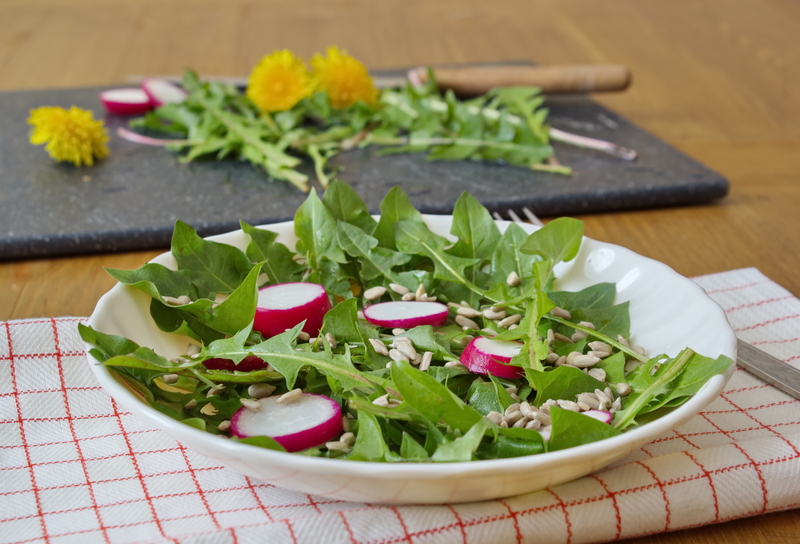Weed Control Made Easy: 3 Steps for a Healthier Garden
Posted on 30/05/2025
Weed Control Made Easy: 3 Steps for a Healthier Garden
Coaxing a beautiful, thriving garden out of the earth is a joy--but nothing saps that enthusiasm like stubborn weeds. Fortunately, weed control doesn't have to be a losing battle! With a few strategic steps, you can enjoy a lush, weed-free oasis all season long. Whether you're an amateur gardener or a seasoned landscape aficionado, these simple methods will transform your approach to managing weeds and nurturing your plants.
Understanding Weeds: The First Step to Effective Garden Weed Control
Before you can tackle weed control in your garden, it's vital to understand your opponent. Weeds are more than just unsightly--many rob your cherished plants of nutrients, water, and sunlight. Some can even spread plant diseases.
What Are Weeds?
- Annual weeds - These fast-growing invaders complete their life cycle in one year. Common examples include chickweed and crabgrass.
- Perennial weeds - The tough survivors! These weeds, such as bindweed and dandelion, return yearly from deep roots.
- Biennial weeds - Taking two years to mature, these include plants like bull thistle and garlic mustard.
The key to successful weed management lies in swift action: treat young weeds before they mature and reproduce!

Why Is Weed Control Important for a Healthy Garden?
Unmanaged weeds cause multiple issues for your garden:
- They compete with your desired plants for water, nutrients, and light.
- They harbor pests and plant diseases.
- They decrease the visual appeal of your garden beds.
- They can become overwhelming if not addressed promptly.
Consistent weed prevention helps your plants stay strong, improves soil health, and gives you more enjoyment from your outdoor space.
Weed Control Made Easy: The 3 Simple Steps
Ready for easy weed control? Follow these three steps to reclaim your garden from unwanted intruders while fostering a thriving, vibrant landscape.
Step 1: Prevent Weeds Before They Start
It's always easier--and safer for your plants--if you can block weeds from germinating in the first place. Here's how to prevent weeds in garden beds, lawns, and vegetable plots:
-
Mulching: Covering soil with an organic or inorganic mulch is a gardener's best friend. Mulch for weed control creates a barrier, suffocates weed seeds, and locks in moisture for your plants.
- Use organic mulches like straw, shredded bark, or compost to nourish your soil as they break down.
- Inorganic mulches, such as landscaping fabric or gravel, are great for permanent beds and pathways.
- Landscape Fabric: For new beds or heavily infested areas, install a permeable landscape fabric underneath gravel or bark mulch. This cuts off sunlight and stops weed seeds from sprouting.
- Proper Plant Spacing: Densely planting ground covers or flowers crowds out weeds by limiting open soil where seeds can settle.
- Healthy Lawn Maintenance: Raise your mower height. A thick, tall lawn shades out many weed species. Overseed bare patches regularly to prevent weeds from moving in.
Remember: Most weed seeds require sunlight to sprout. Fewer exposed soil areas mean fewer weeds!
Step 2: Remove Existing Weeds Regularly
Even the best prevention efforts won't catch every weed. Consistent removal is the secret to effective weed management and keeps your garden healthy.
Manual Weed Pulling: The Gold Standard
- Hand-pulling: Catch weeds while they're small and pull right after rain or watering, when soil is soft.
- Using garden tools: A hoe or a weeding fork can make quick work of larger areas. For tap-rooted weeds (like dandelions), use a long, narrow tool to pry out the entire root.
Pro Tip: Never let weeds go to seed--one dandelion can produce thousands of seeds! Remove flower heads immediately.
Organic Weed Control Methods
- Solarization: For tough weed patches, cover the area with clear plastic during the hottest weeks of summer. The heat will kill weed seeds and roots below the surface.
- Boiling Water: Pouring hot water on cracks and driveways can quickly eradicate weeds--just don't spill it on desired plants.
- Natural Vinegar Solutions: Mix white vinegar with water (and a splash of dish soap) for a quick, natural weed killer. Use caution: vinegar may harm nearby plants too.
When to Use Herbicides?
Sometimes, an overwhelming weed problem requires a selective chemical weed killer. Choose products labeled for the target weed species and use them sparingly, following safety directions.
- Spot-treat only the weed, avoiding wanted plants.
- Never use herbicide on windy days.
- Consider organic alternatives first when possible.
Regular weeding sessions work wonders for minimizing garden upkeep in the long term.
Step 3: Keep the Soil and Plants Healthy
A garden teeming with strong, vigorous plants will naturally outcompete weeds. Healthy, living soils improve root growth, water absorption, and overall garden resilience.
- Soil Amending: Add compost or well-rotted manure in spring and fall to build soil structure and boost beneficial microbes.
- Frequent Watering: Water your garden beds early in the morning, targeting plant roots and avoiding watering weed seeds.
- Plant Densely: Planting closely leaves less unused ground, crowding out future weed growth.
- Rotate Crops Annually: For vegetable gardens, rotating plant families each year can disrupt weed cycles and discourage soil-borne pests.
- Monitor Regularly: Weekly garden walks allow you to spot weeds early, assess soil health, and make necessary changes.
Building Healthy Soil for Natural Weed Resistance
Nutrient-rich soil supports quick-growing, robust plants. These healthy plants create dense foliage that blocks sunlight--nature's own easy weed control method!
Soil health = plant health = fewer weeds.
Bonus Tips: Long-Term Weed Control Solutions
- Edge Your Garden Beds: Physical or stone edging helps separate lawn from garden, making it harder for creeping weeds to invade.
- Encourage Beneficial Insects: Ladybugs, ground beetles, and other natural predators eat weed seeds and keep weed populations down.
- Stay Consistent: Set a weekly or bi-weekly schedule to inspect beds and remove new weeds. Routine keeps chores small and manageable.
- Compost with Caution: Never add freshly pulled weeds that have gone to seed to your compost bin--they may sprout later!
Low-maintenance weed control is possible with planful, consistent habits and the right garden tools.
Frequently Asked Questions About Weed Control
How do I permanently eliminate weeds from my garden?
Complete and permanent weed elimination is a tall order, since seeds can blow in from nearby sources. However, by following preventative measures, removing weeds before they set seed, and fostering healthy soil, you can keep weeds to a minimum for years to come.
Is mulch the best way to control weeds?
Mulch is one of the best weed control strategies. It smothers sprouts, blocks light, and enhances your soil. Regularly top up mulch layers for maximum benefit.
Are chemical herbicides safe for my garden?
Chemical weed killers should be used with caution. Always follow the manufacturer's directions exactly, apply on calm days, and target only specific weeds. Organic and manual methods should come first in your garden weed control routine.
How often should I weed my garden?
Inspect your garden at least once a week, pulling young weeds before they mature. Regular attention makes weed management quick and easy.

Summary: Make Weed Control Easy for a Healthy, Beautiful Garden
Weed control made easy is about prevention, consistency, and nurturing your outdoor space. With these three simple steps for a healthier garden—prevent, remove, and nurture—you can enjoy robust, beautiful plants and far fewer weeds.
- Prevent: Stop weeds before they sprout with mulch, landscape fabric, and dense planting.
- Remove: Consistently pull or treat weeds as soon as you see them using organic or manual methods.
- Maintain: Support healthy plants and soil for natural weed resistance.
Stick to these strategies, and you'll spend less time battling weeds--and more time loving your lush, vibrant garden!
Ready to Create Your Healthiest, Weed-Free Garden Ever?
Take action today: Assess your garden, apply preventive mulch, and dedicate a little time each week to smart weed control. Your plants will thank you--and so will your future self!

